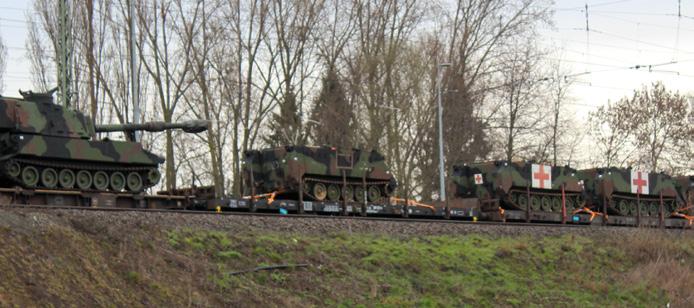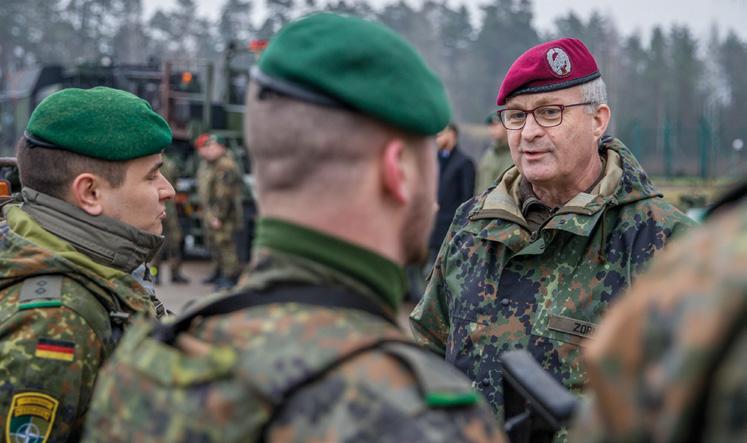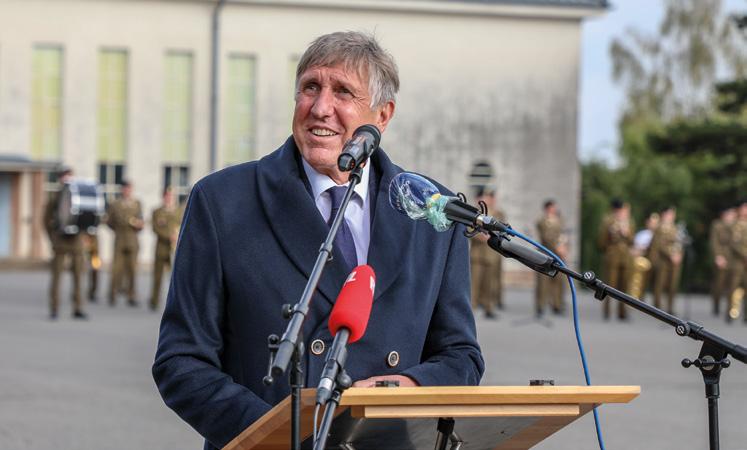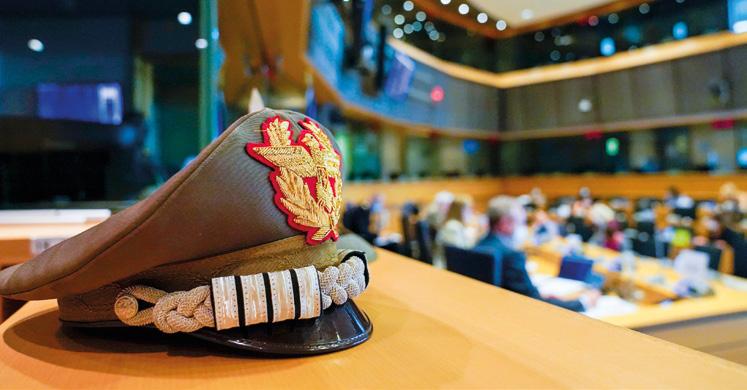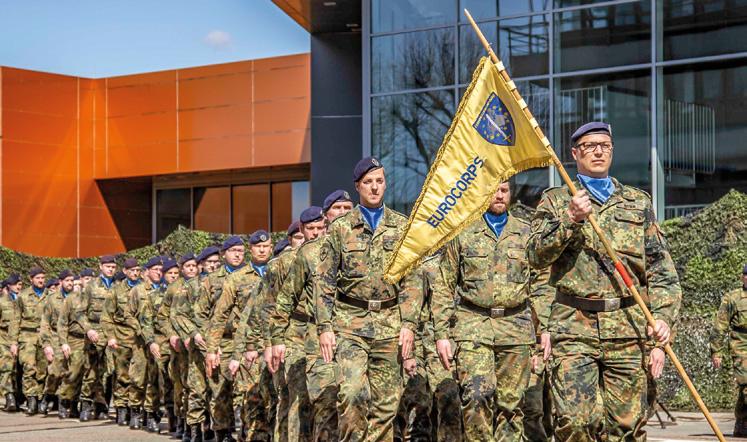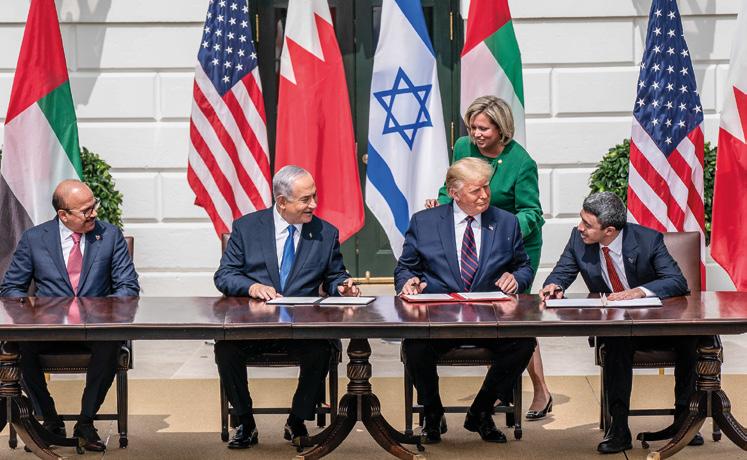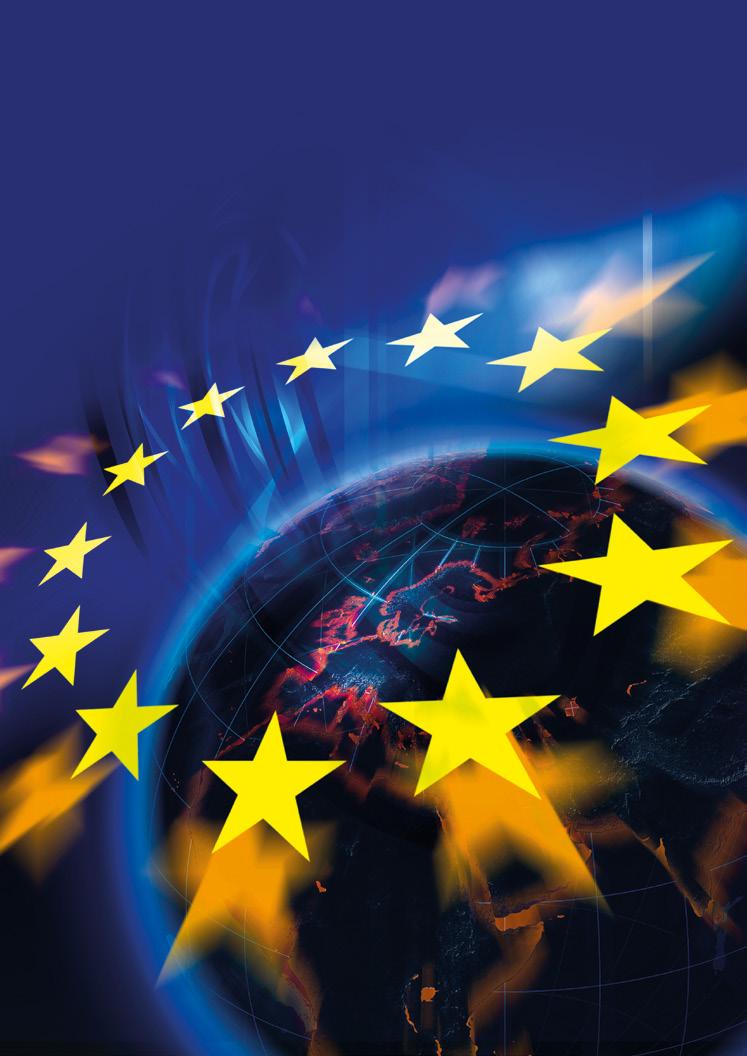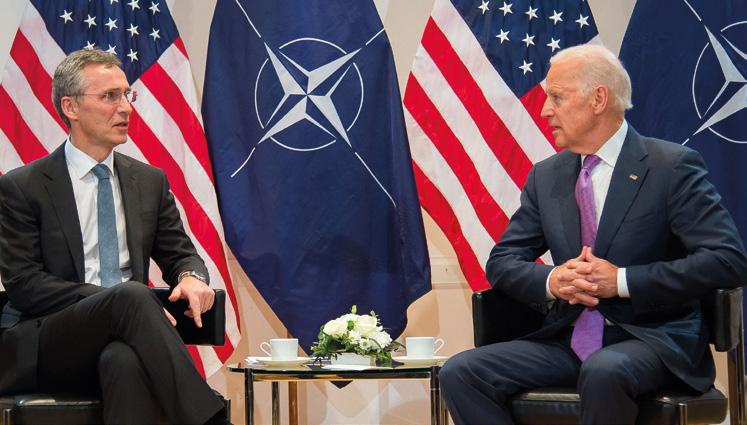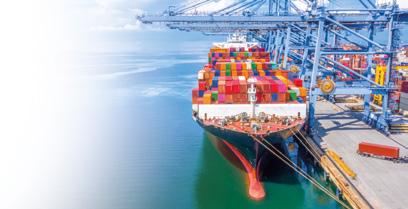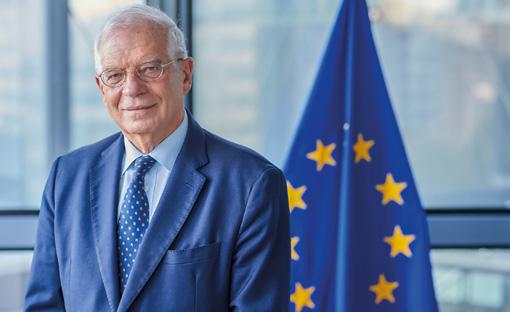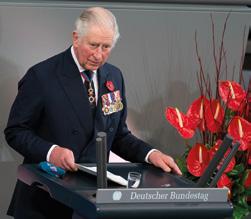MAIN TOPIC: Quo vadis Europe?
Back to normal transatlantic relations
The impact of the US election on Europe
Jens Stoltenberg (l) and Joe Biden meeting in 2015
by General (ret.) Harald Kujat, former Chairman NATO Military Committee, Berlin
N
o sooner is the election over than expectations are mounting on both sides of the Atlantic that the President-elect will seek to overcome the upheavals in the transatlantic relationship. Nothing would be better suited to restoring the priority status of the Alliance in transatlantic relations than an early NATO summit. The extent to which American and European security interests have diverged is illustrated by the Trump Administration’s withdrawal from the INF treaty. This was tantamount to abandoning a founding principle of the North Atlantic Alliance: the strategic unity of the Alliance’s territory with the same level of security for all allies. Russia has been given a free hand to build up a euro-strategic nuclear potential that can threaten Europe but not the American continent.
High expectations in Europe Europeans justifiably expect President Biden to restore a normal situation among allies and correct the increasing disregard for its security interests by focusing more strongly on the common defence alliance. It should not however be forgotten that President Biden will of course determine American external and security policies on the basis of American interests and that problems between the US and Europe were apparent before the start of the Trump Administration. The greatest challenges for the new President are the intensification of rivalries between the great powers, primarily with China but also with Russia, and also the need to
photo: NATO
revert to its role as a global superpower, prepared to take on the challenges of crises and conflicts. Biden must therefore, with limited resources and at the same time as improving relations with his European allies, focus specifically on the Indo-Pacific Region. The former Defence Secretary, Mark Esper, as recently as early October 2020, released a new strategy document, “Guidance for Development of Alliances and Partnerships/GDAP”, the thrust of which is the need to strengthen the US’s alliances and build partnerships. This will involve building up allies’ military capacities and capabilities and improving the interoperability of their armed forces.
The importance of the Indo-Pacific region Because of their geostrategic position in the Indo-Pacific region, Japan, India and Australia are particularly important in the confrontation with China, whereas NATO continues to play a key strategic role in the US’s bilateral rivalry with Russia.
“The greatest challenges for the new President are the intensification of rivalries between the great powers, primarily with China but also with Russia, and also the need to revert to its role as a global power of world order, prepared to take on the challenges of crises and conflicts .
”
→ Continued on page 22
21


